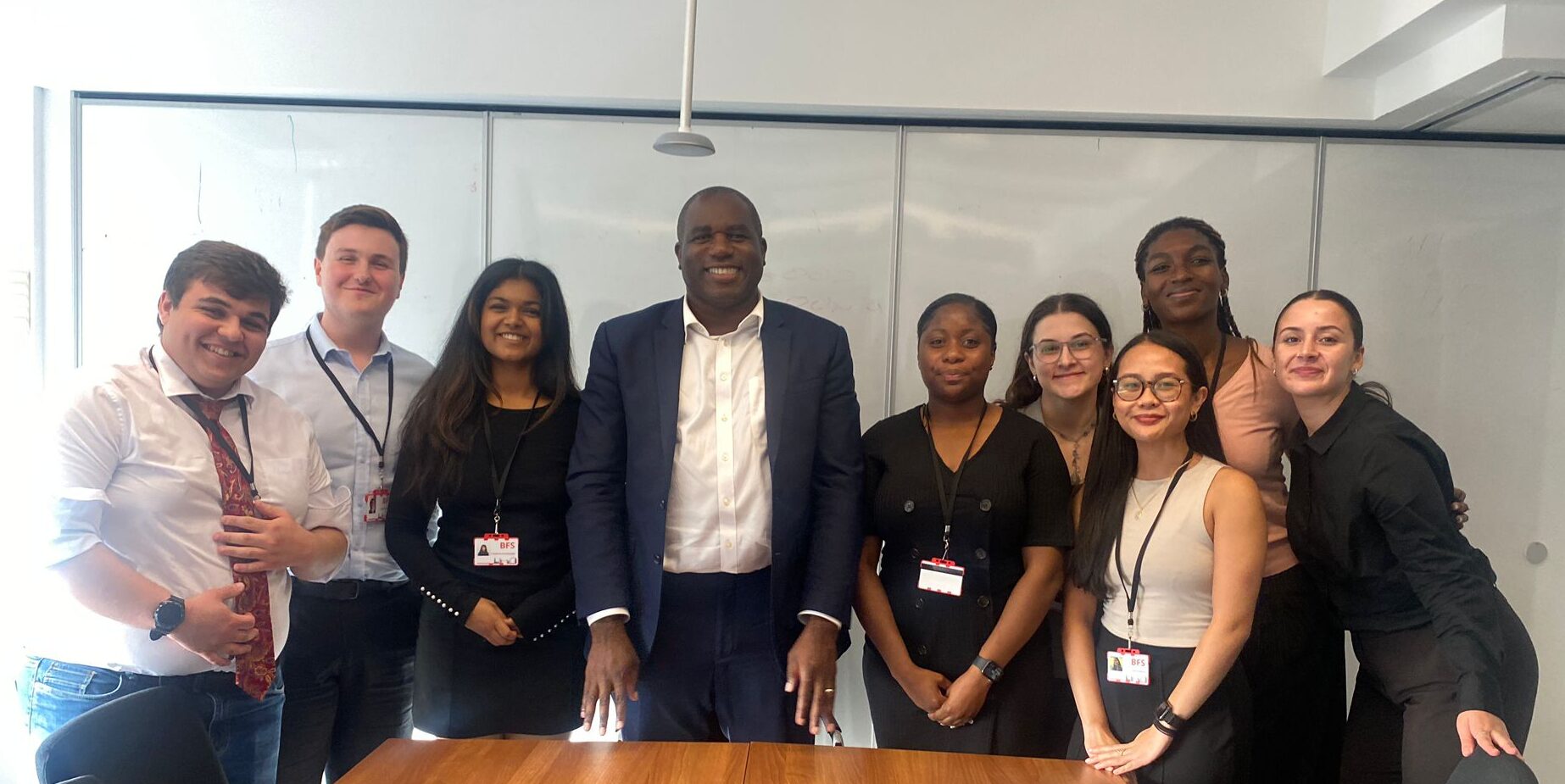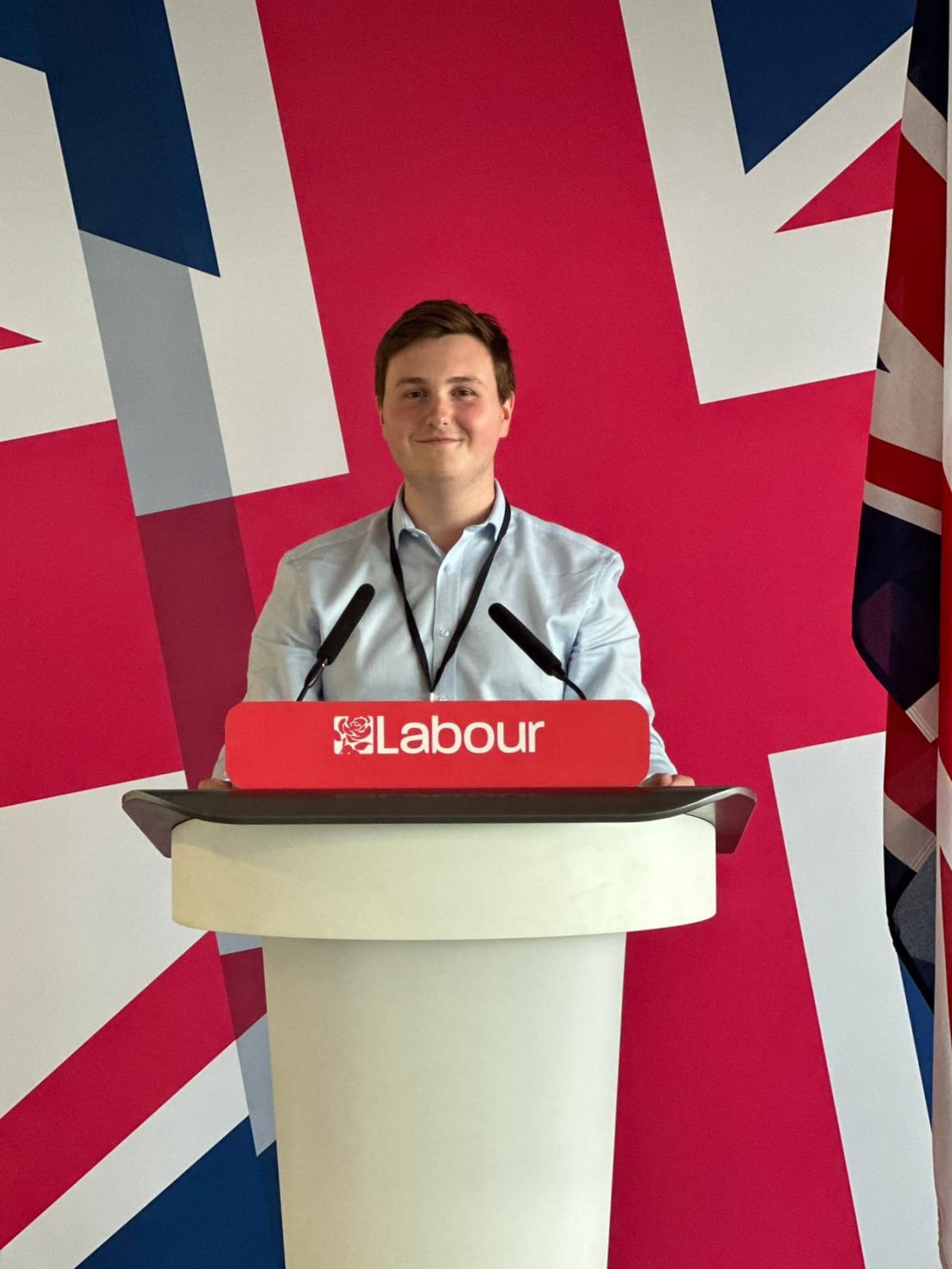”I am proud to support the ground breaking work of the Patchwork Foundation. Patchwork is one of the few organisations I know that trains young people from diverse backgrounds on political campaigning and then helps them to implement those skills on the doorstep through their GetInvolved programme.”
Executing Politics with Empathy: My experience canvassing and tips for success
Isabella is a third-year undergraduate reading politics and modern history at the University of Manchester. The multi-disciplinary aspect of Isabella’s degree allows her to explore the links between her interests: political/intellectual history and international relations/social politics. Isabella is currently undertaking a placement year at British Airways within the CRM Communications Team; she is not only gaining valuable insight into the methods and delivery of effective communications but also a broad understanding of global business operations through self-organised shadowing. Isabella seeks a positive and rewarding career in the civil service or corporate business.
My first-ever canvassing experience has positively transformed my political understanding and led me to believe that everybody has something to learn from campaigning. Don’t get me wrong, the thought of canvassing is terrifying. Imagine knocking on the doors of strangers to enquire about their political prescriptions. On top of that, imagine doing it for a party you might not even support, with people you have never met. Never fear, if this sentiment resonates, I want to share my experience in the hope of making canvassing seem slightly less frightening and to insist that there is a lot to learn from humble door-knocking.
As a student of politics at university, I consider myself to be well-versed in current British politics and recognise the centrality of campaigning to local politics. Whilst I read about activism in the daily news and frequently come across it on social media, this aspect of politics feels especially daunting. I have always felt underqualified for campaigning and resigned it ‘to the professionals’ (perhaps it is because I am a part of the generation that can participate in politics from the safety of being behind a screen). The truth is, I was completely wrong. Campaigning is for everyone, and confidence should never be a barrier. In retrospect, I wish I had taken the first step to get campaigning much sooner.
Patchwork’s #GetInvolved programme has provided me with the support I needed to throw myself into political campaigning. I felt like this was my chance, so I attended Patchwork’s ‘Canvassing Briefing’ lead by two of their Alumni, Zara and Frankie. They expertly put myself and my fellow Patchworkers at ease in explaining the basics, dos, and don’ts of canvassing.
“My main takeaway from this session was that canvassing is essentially a listening exercise.”
There is zero expectation that you persuade or convince voters. Instead, the aim of door-knocking is to ask questions and listen attentively to the answers given. This came as somewhat of a shock to me as someone who remembers campaigners standing at the door with my parents discussing politics and policy! In addition, if knocking on doors is not for you, there are several other roles within the canvassing process such as leaflet drop-offs and admin, so it really is for everyone!
My one aim for my first canvassing session was to apply Zara and Frankie’s advice, to ask and listen. Before I arrived, I was struck with nerves imagining walking into a room filled with high-intellectual politicians all speaking in jargon. To my surprise when I arrived, I was greeted by welcoming smiles and a well-organised operation prepared for newcomers like me.
Having been paired with a local councillor, I found after we knocked on the first few doors my predispositions were immediately quashed, and I observed the success of bringing democracy to the doorstep, a particularly accurate description of canvassing I heard recently. My favourite interaction of the day was a conversation on one doorstep with an individual who initially wasn’t interested in talking with us, but later began to discuss their concerns about their local area. We discussed the experience and concerns of the younger generation and shared some reflections over recent changes to the education system. We recalled opportunities that I, as a university student, will never get to experience. The conversation wrapped up positively, and I felt that I had made a real connection with the voter. Throughout the day I had several more interactions like this one, in which someone who I didn’t necessarily agree with showed acute concern for my future and a desire to make change for my generation’s sake.
These interactions taught me three things:
- Listening attentively is one of the greatest tools in the toolbox.
- Finding common ground (about anything) goes a long way.
- Executing politics with empathy leads to success.
Let me divulge my learnings from my first experience canvassing:
Zara and Frankie’s invaluable advice is something to follow, when you enter a conversation on the doorstep start by asking questions and listening attentively to the answers given, this will ensure you don’t get caught out and ease you into positive conversation. In light of this, enter conversations with zero judgment or predisposition about what beliefs the voter may hold (yes, this is a basic one, but you would be surprised by what your subconscious thinks up)! Above all else, execute each interaction with empathy, voters are human beings after all, and personal stories accompany almost all opinions. Finding common ground goes a long way to build rapport but this is non-essential, instead, enter interactions with kindness and it will most likely be reciprocated. Finally, not all of your canvassing experiences will follow suit so be flexible and expect everyone you speak to harbour completely different views. These aren’t just skills to use when canvassing but interpersonal qualities that help to build rapport and connection.
Ultimately, throw yourself into it and knock on that first door. Don’t let confidence hold you back. I hope this blog has debunked canvassing sufficiently for you to enjoy the experience and hopefully learn something!
Our #GetInvolved programme enables under-represented communities to engage with grassroots politics. We equip you with the skills and opportunities to have your voice heard, regardless of your political knowledge or experience. We’re running events across the country this year, so sign up to #GetInvolved now.
Stay updated
Join our mailing list to stay up to date with all the latest!
Testimonials


